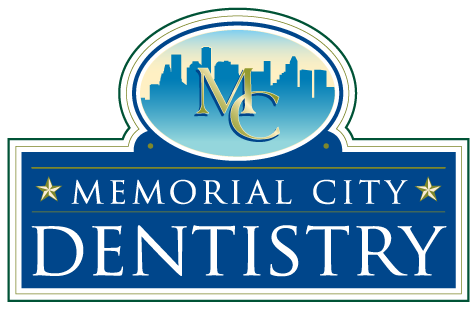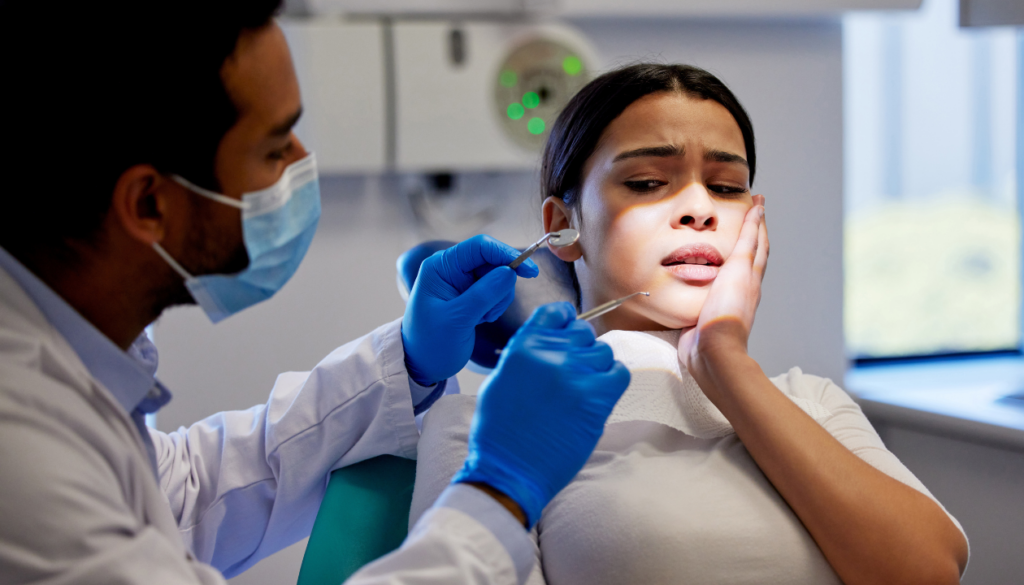Dental emergencies can strike when you least expect them, turning a normal day into a frantic race for help. Whether it’s a knocked-out tooth from a bike accident or persistent pain that won’t subside, knowing how to act quickly can make all the difference.
In fact, nearly one in six Americans experiences a dental emergency each year, highlighting the importance of being prepared.
When faced with a dental crisis, your first instinct might be panic. However, staying calm and knowing the right steps to take can lead to better outcomes.
From calling your dentist to managing pain and bleeding, understanding the essentials of handling a dental emergency can help you navigate the situation effectively. Let’s explore the best practices to ensure your dental health remains intact during these unexpected moments.
Understanding Dental Emergencies
Dental emergencies require prompt attention. Knowing the types and definitions can help you act swiftly when faced with a dental crisis.
Definition of a Dental Emergency
A dental emergency is an urgent condition defined by the American Dental Association (ADA) as any issue that poses life-threatening consequences or requires immediate treatment. This includes situations where ongoing tissue bleeding must be stopped or where severe pain or infection needs alleviation.
- Uncontrolled Bleeding: Trauma, accidents, or health conditions can lead to serious bleeding. Immediate medical attention is vital to manage this situation and prevent complications.
- Soft-Tissue Infections: Infections can manifest as swelling in intraoral or extraoral regions. Such infections risk compromising the airway and may spread from teeth to soft tissues, causing swelling, sometimes without pain.
- Trauma Involving Facial Bones: Injuries to facial bones may lead to airway obstruction. These injuries require urgent care to ensure both airway stability and proper treatment.
Recognizing these dental emergencies can guide you in seeking the necessary care and minimizing potential complications.
How to Handle a Dental Emergency
You can effectively manage a dental emergency by following structured first aid steps and employing pain management techniques. Prompt action can lead to better outcomes in critical situations.
Immediate First Aid Steps
Knocked-Out Tooth
Act quickly when facing a dental emergency. For a knocked-out tooth, immediately retrieve the tooth and gently rinse the root with water. Avoid scrubbing the tooth or removing any attached tissue.
If you can, place the tooth back in its socket, ensuring it faces the correct direction. If that isn’t possible, store the tooth in milk, saliva, or a tooth preservation product that carries the ADA Seal of Acceptance.
Keep the tooth moist, and seek dental care immediately.
Cracked or Broken Tooth
For a cracked or broken tooth, start by rinsing your mouth with warm water to cleanse the area and check for rough edges or pain. Apply cold compresses to your face to reduce swelling.
Save any pieces of the broken tooth and bring them to the dentist. If bleeding occurs, apply gauze for 10 minutes or until it stops.
Pain Management Techniques
Managing pain effectively during a dental emergency is crucial. Use over-the-counter pain relievers, such as ibuprofen or acetaminophen, to alleviate discomfort.
Apply cold packs to the affected area to help reduce swelling and numb sharp pain. If you experience swelling, elevate your head while resting to minimize discomfort. Avoid foods that require chewing, and stick to soft foods until you can get professional dental care.
When to Seek Professional Help
Knowing when to seek professional help during a dental emergency is crucial. Certain signs indicate urgent situations that require immediate care.
Signs That Require Immediate Attention
You should seek immediate attention if you experience any of the following:
- Severe Pain: Intense tooth pain that disrupts daily activities often signals a serious issue, such as an abscess or severe decay.
- Uncontrolled Bleeding: Bleeding that cannot be stopped after 10 minutes of applying pressure demands immediate professional assistance.
- Swelling: Rapid swelling in the face or mouth can indicate a serious infection or an allergic reaction.
- Knocked-Out Tooth: If a tooth is completely avulsed, prompt action increases the chances of successful re-implantation.
- Fever: A fever in conjunction with oral pain may point to an underlying infection that requires immediate care.
- Difficulty Breathing or Swallowing: These symptoms could indicate an obstruction or severe allergic reaction, necessitating urgent medical help.
Emergency Room vs. Dental Office
Determining whether to visit an emergency room or a dental office hinges on the severity of your situation.
- Emergency Room: Opt for the emergency room if you face life-threatening symptoms, such as difficulty breathing, severe swelling, or uncontrolled bleeding.
- Dental Office: Contact your dentist for issues like toothaches, cracked teeth, or dental traumas without significant systemic symptoms. Many dental offices provide after-hours care for such emergencies and can often address your needs more effectively than a hospital.
By recognizing these signs and understanding where to seek help, you can better navigate dental emergencies and ensure timely treatment.
Preventive Measures
Being proactive in dental care can significantly reduce the likelihood of emergencies. Implementing preventive measures ensures you and your family maintain optimal oral health.
Tips to Avoid Dental Emergencies
- Use Mouthguards: Wear mouthguards during contact sports or high-impact activities. Mouthguards protect teeth from trauma by absorbing impact.
- Practice Good Oral Hygiene: Brush teeth twice daily and floss once a day. Regular cleaning prevents cavities and other dental issues that may lead to emergencies.
- Limit Sugary Foods and Drinks: Reduce sugar intake, as it contributes to tooth decay. Opt for water or healthier snacks to maintain dental health.
- Avoid Hard Foods: Steer clear of hard or sticky foods that may crack or damage your teeth. Choose softer alternatives to protect your dental structure.
- Don’t Ignore Symptoms: Address any dental discomfort promptly. Ignoring signs like pain or sensitivity can lead to serious complications that result in emergencies.
Importance of Regular Dental Check-ups
Regular dental check-ups play a crucial role in preventing emergencies. Visiting your dentist every six months allows for early detection of potential issues. During these visits, your dentist can:
- Identify Problems Early: Dental exams can reveal cavities, gum disease, and other conditions before they escalate into emergencies.
- Provide Professional Cleanings: Routine cleanings remove plaque and tartar buildup, reducing the risk of decay and infection.
- Update Treatment Plans: Dentists can adjust existing treatment plans based on your current oral health status, ensuring effective and timely care.
By incorporating these preventive measures and prioritizing regular check-ups, you can significantly decrease the risk of dental emergencies and maintain a healthy smile.
Conclusion
Handling a dental emergency effectively can make all the difference in preserving your oral health. By staying calm and following the right steps you can minimize damage and alleviate pain.
Remember to always contact your dentist for guidance and seek immediate care when necessary.
Incorporating preventive measures into your routine can significantly reduce the likelihood of emergencies. Regular check-ups and good oral hygiene are key to spotting potential issues before they escalate.
Stay informed and prepared so you can tackle any dental crisis with confidence. Your smile deserves it.
Frequently Asked Questions
What constitutes a dental emergency?
A dental emergency is any urgent dental condition that poses a risk to your health, requiring immediate professional care. This includes severe pain, uncontrolled bleeding, or trauma that affects your ability to breathe or swallow, as defined by the American Dental Association.
How can I prepare for a dental emergency?
To prepare for a dental emergency, keep a list of emergency contacts, including your dentist’s phone number. Have essential supplies at home, like a first-aid kit, pain relievers, and a cold pack. Knowing how to manage common issues, like a knocked-out tooth, can also help.
What should I do if I knock out a tooth?
If you knock out a tooth, keep it moist by placing it back in its socket, or store it in milk or saliva. Rinse the tooth gently with water, avoid scrubbing, and seek dental care immediately for the best chance of reattachment.
When should I go to the emergency room for a dental issue?
Visit the emergency room if you’re experiencing life-threatening symptoms, such as severe swelling affecting breathing, uncontrolled bleeding, or fever accompanying a dental issue. For less severe problems, contact your dentist for guidance.
How can I manage pain during a dental emergency?
To manage pain during a dental emergency, use over-the-counter pain relievers, apply a cold pack to reduce swelling, and consume soft foods. Avoid any home remedies that may cause more harm and seek professional help as soon as possible.
What preventive measures can reduce dental emergencies?
Preventive measures include using mouthguards during contact sports, maintaining good oral hygiene, limiting sugary foods, and addressing dental discomfort promptly. Regular dental check-ups can help identify potential issues early, reducing the risk of emergencies.
How can I recognize a dental emergency?
Recognize a dental emergency by observing symptoms such as severe pain, uncontrolled bleeding, rapid swelling, a knocked-out tooth, or difficulty breathing or swallowing. If you experience any of these signs, seek immediate professional care.
Can the emergency room provide adequate dental care?
Emergency rooms can offer temporary solutions, such as pain relief or antibiotics. However, they are not equipped for comprehensive dental care, so it’s best to contact your dentist for ongoing dental issues or treatment plans.
Memorial City Dentistry – Your Trusted Partner in Emergency Dental Care
Dental emergencies can happen when you least expect them. At Memorial City Dentistry, we are prepared to handle your urgent dental needs with precision and care.
Our emergency care plan ensures that you get the relief and treatment you need fast. Don’t let a dental emergency jeopardize your health—call us today and get peace of mind knowing you’re in expert hands.


